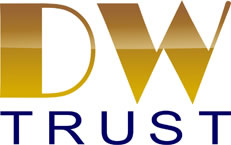An Alternative Trading System (ATS) is a trading venue, which serves as an alternative to trading at a public exchange. In some ATS (also referred to as “dark poolsâ€) buyers and sellers are matched anonymously without pre-trade display of bids and offers, and the trade is publicly reported upon execution. It is important to note that the basic function of a broker-operated ATS is an electronic manifestation of a previously manual trading process, when trading desks would first try to execute trades internally before sending the order to a public exchange. Industry reporting estimates total “dark pool†volume to be less than 10% of all stock market transactions. The vast majority of trades still occur at exchanges and ECNs.
 ATS` are affiliated with registered broker-dealers and accordingly, their activities are governed by the same rules and regulations that govern broker-dealer activities generally.
ATS` are affiliated with registered broker-dealers and accordingly, their activities are governed by the same rules and regulations that govern broker-dealer activities generally.
Dawson White Trustsupports regulation that enhances post-trade reporting transparency for ATS`. As a first step in the effort to support enhanced public information on ATS trading activity, Dawson White TrustExecution and & Clearing, recently adopted a standardized method for counting executed trades in its ATS.
Non-displayed or “dark” orders and related trading activity are part of the price discovery process. When seeking best execution of their orders, market participants use trading tools that shift between providing displayed and non-displayed quotes, balancing the benefits of displaying a quote to achieve an execution versus not displaying a quote in an attempt to reduce market impact and potentially obtain price or size improvement on their order. All Dawson White Trust ATS trades “print†real-time to a trade reporting facility. This publicly available “time and sales†data is an integral component of price discovery, and ATS trading contributes to this in the same manner that public exchanges do.
ATS` have led to increased innovation and competition. Increased competition among trading venues has led to a broad reduction in explicit trading costs for both institutional and individual investors. For example, retail brokerages take advantage of the lower transaction fees offered by ATS` to provide low trading commission fees to their customers.
Via EPR Network
More Financial press releases

